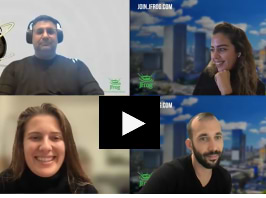Security and DevOps: “Go get an approval for this library usage. Or not?” @ DevOps Toronto Meetup
April 5, 2021
< 1 min read
Security and DevOps. Go get an approval for this library usage. Or not?
To be good at security, you need to think like a CISO; you need to act like a CISO; you need to become a CISO… or do you? In this talk, we’ll keep following Alex and their journey towards better software engineering processes. A dive into the world of information security presents Alex with new goals, new challenges, and new headaches. Or maybe the headaches were there before and now just became more visible?






